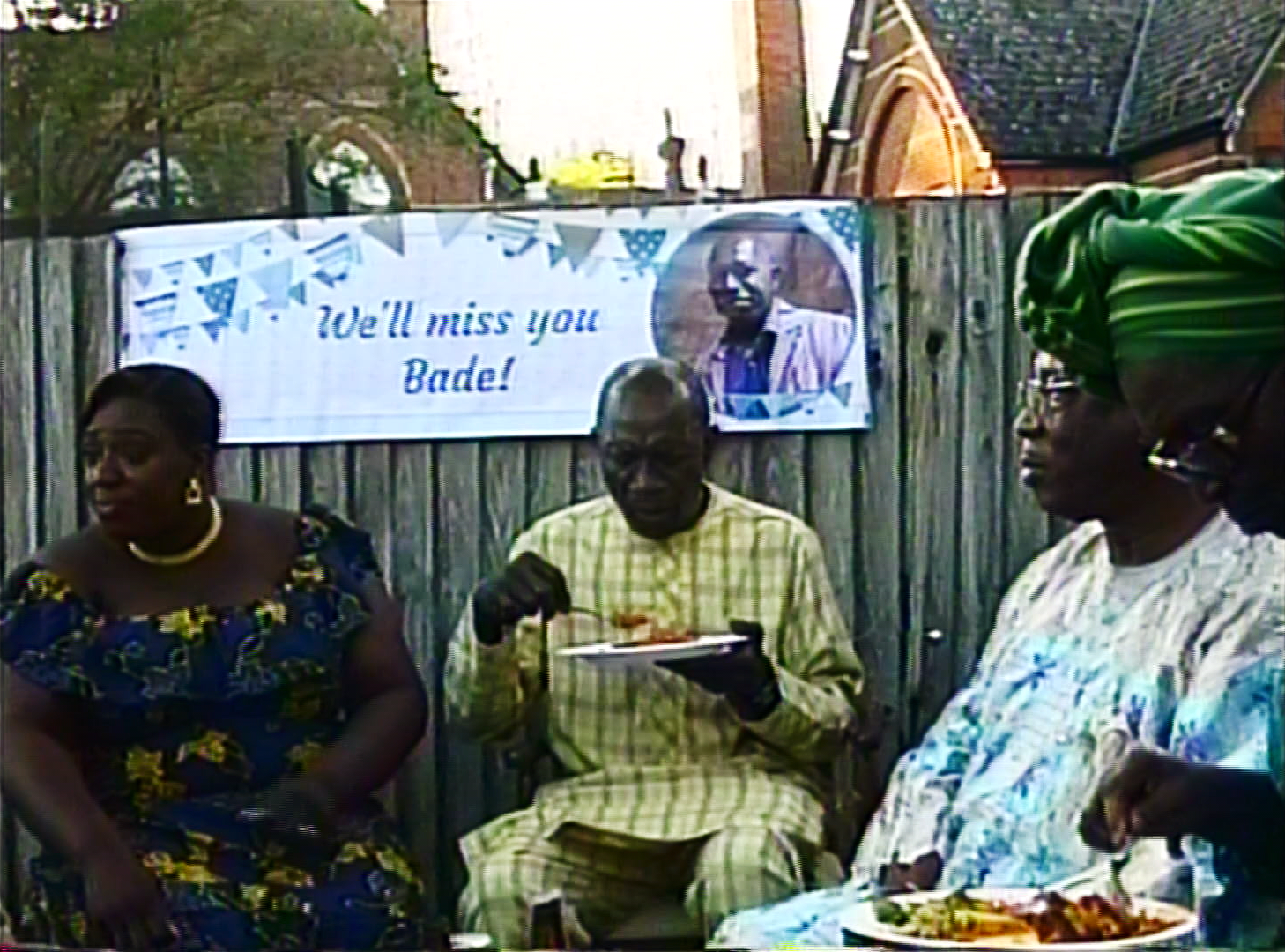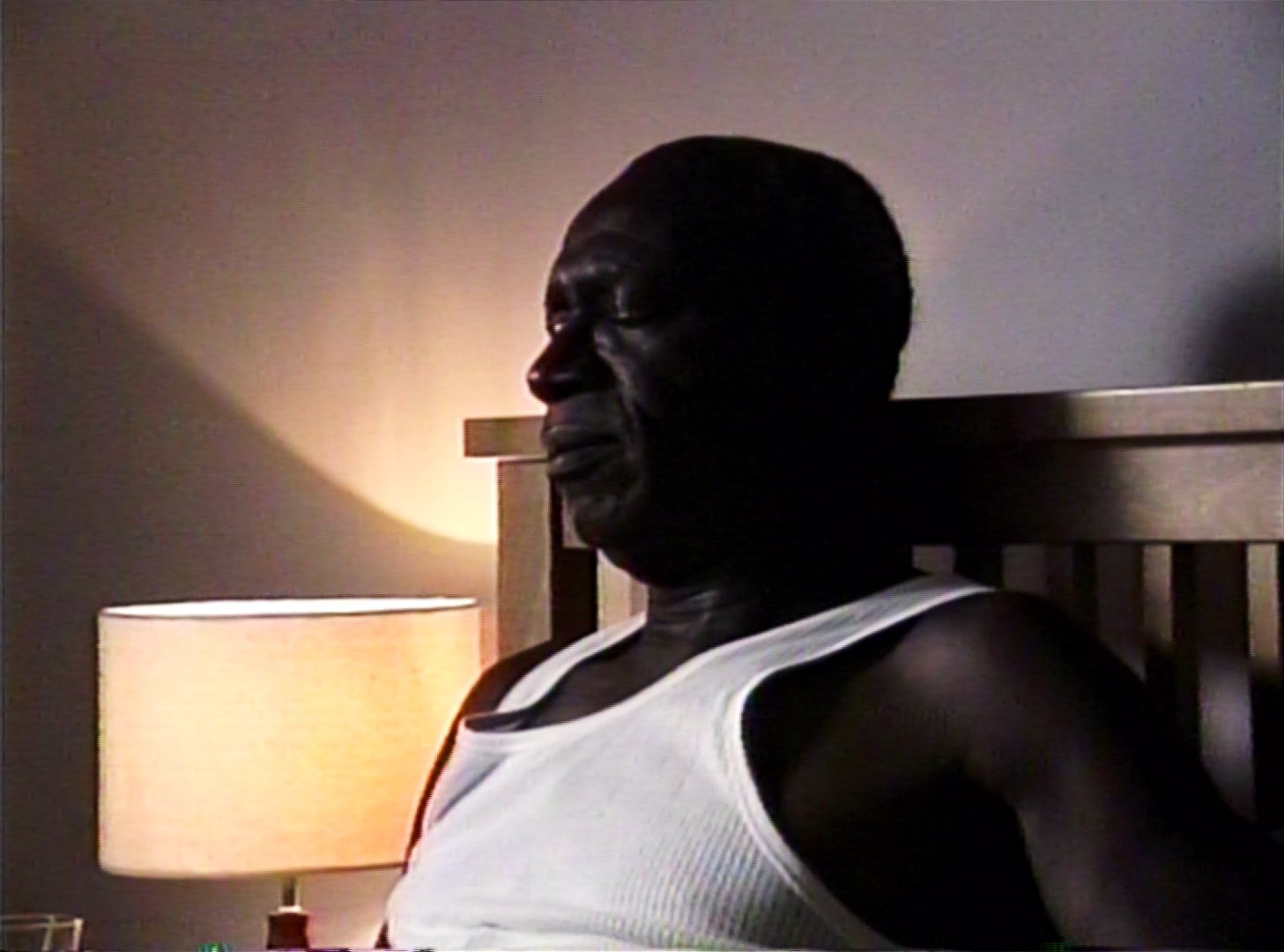By Ifeoluwa Olutayo.

Still from Journey Mercies by Tomisin Adepeju.
There are many distinctions to be remarked upon about the video era of Nigerian cinema, the era in which the name Nollywood came to refer to the first-VHS, then-CD-DVD, Nigerian film industry. Of all its illustrious importance–the ease of access, piracy’s golden child, a new age of cinema unencumbered by the country’s failings—the content was just as key. You see, one of the biggest reasons for all its profound, like-wildfire success, was the stories told. They were stories that represented the anxieties of the people at the time and reflected the audience’s perception of the society they lived in. This made them wildly popular on the continent and beyond.
In time, films touting an escape to a better life abroad were made, and even Nigerians in the diaspora made films touting the (sometimes harsh) realities of their new country, in the Nollywood style, a sort of exchange of Home.
Tomisin Adepeju’s short film, Journey Mercies, embodies some of that exchange of Home, navigating a story of a library cleaner in the UK who yearns to return home to Nigeria, disillusioned with what seems to be his current lot in life. This tale of migration anxieties is not new, but Tomisin deftly guides us into his going-away, painting almost from the first sequences a connection to home that I haven’t seen in a while. It would be remiss of me not to mention that this film was shot on the Video Home System (VHS) medium, and it evokes a certain longing for a time long gone, just as the main character, Bade, longs for home.
There are many themes at play here: a longing for home, yes, but also a community of support, familial concerns, exploitative relatives, and love’s continuous yearning for fulfilment.
Bade’s story is soundtracked by music that brings memories of my past iteration of Home in its transience, places half-forgotten. Bade’s yearning manifests in bringing the past to him, existing as one, transforming his yearning into a firm determination to return, even when informed by a (possibly) exploitative sibling that life in Nigeria is significantly worse than it used to be. He’s uninterested in the babbles and haggles of his life in the UK, and even though his son makes a case for his shelving of those ideas of return, citing medical conditions, he refuses to acquiesce.
He is intent on returning to start up a publishing house with a sibling, a way to connect back to his writing, which he did with a published flourish in Nigeria in the 1980s. It also speaks to his character that his UK cleaning job lies not anywhere but in a public library. It may add to his joys to work amongst books, relishing their content as he shuffles back and forth arranging them, but I also like to believe that it adds to his grief, of being so close to books that tell tales of his contemporaries, but not those he has been burdened with.
It’s a tale of a world where he doesn’t feel like he fits in and one he seeks to leave behind.
This is where the story lies, in the melding of past and present. It is the idea of Home not just as a place to dwell in, like the structure he was building back in Nigeria, but Home as a person. Bade is burdened with grief, grief that Tomisin communicates in resplendence of colour in bleak landscapes. His return home is fueled intensely by a need to fulfil his dead wife’s wishes, of a house to live in, a final physical space that carries a meaningful connection to her on this plane.
In Bade’s continuous communication with the past as it exists in his present, he believes that he carries her home, fulfilling a promise he made to the love of his life, and watching those sequences of colour play out is some of the most moving images I have borne witness to on VHS. It reminds me of two films.
JOURNEY MERCIES. Coming Soon.
— Tomisin Adepeju (@TAdepeju) September 12, 2023
Written & Directed by Tomisin Adepeju
Produced by Paul Romero Mendez, Abigail Coniah, Kwaku Ankomah & Tomisin Adepeju
Director of Photography: Olan Collardy. pic.twitter.com/pYe23HZKHD
The first one is Up, the animated film, where Carl journeys to Paradise Falls to fulfill his promise to his dead wife about going there. A key idea that echoes across is Bade and Carl don’t fit in the world they’re in, but where Carl is holding out on developers who are hellbent on redeveloping the area, gentrifying it, and forcing him out, Bade feels disconnected from the world he is in and is determined to return home.
In both films, the houses represent their dead wives. Carl’s insistence on keeping the house, and Bade’s insistence on moving back home to live in the house he and his wife built. The second is The Grand Budapest Hotel, where Zero, through whom the story is told, eventually exchanges a doomed, unprofitable hotel for his fortune. Why? Agnes, his dead wife. They were happy there, and in that very decision, we found that Agnes became the hotel, and the hotel became Agnes. The same ideas are present: Home as a person, Home as a place. A total delight.
Bade is being exploited by his brother, demanding more money for an item he wants for the home he will return to. It reminds us of the harsh realities of immigrants, black-taxed by those back home who believe things are rosy for them.
A scene of community appears; Bade’s going-away party is in full flow, with music and prayers made on his safe journey back home. Its themes have reverberated across Appreciation, Tomisin Adepoju’s last short, and this one. The support that a diasporic community offers new arrivals, one that supports their assimilation or eventual rejection of their new environment. It’s a safe space to be in, to be a member of a home away from home, a place that you can rest in a world so unfamiliar.
In that scene, Bade’s smile at the past seeping into the present was bittersweet. Tomisin’s representation of love in routine is so deft and beautiful.
The camera work is meditative, an observer, mostly static, but also offering a window into a world that feels like a trap. The shots are intimate, but they also reflect Bade’s inner world as it progresses. Isolated, happy at times, conciliatory, and in the end, free.
In the end, home comes calling, and past and present walk out hand-in-hand through the front door. It’s heartbreaking, but the smiles they had on, I will never forget.
Journey Mercies is a film about Home’s continuous call, and with love waiting at the end, who are we not to respond?





